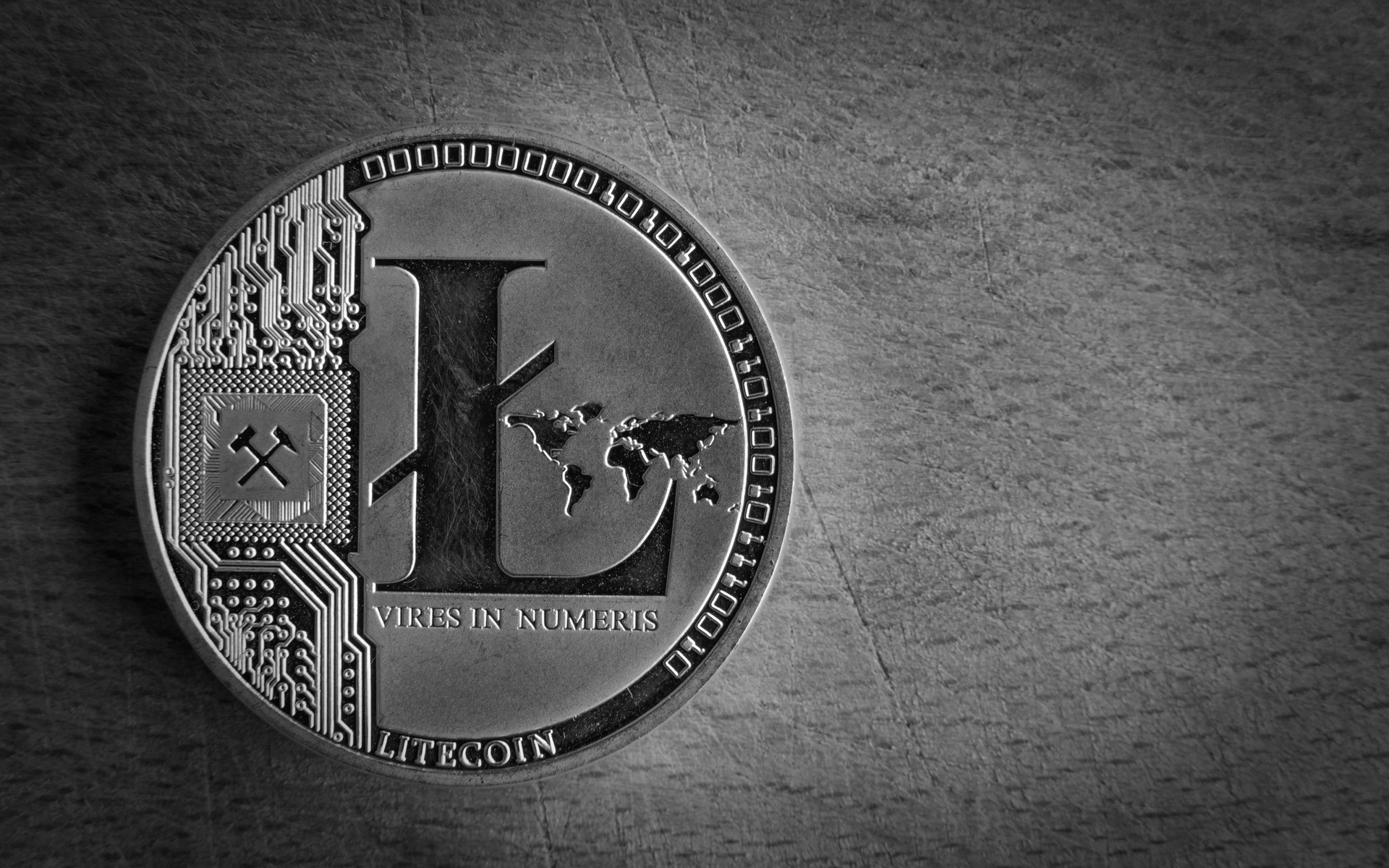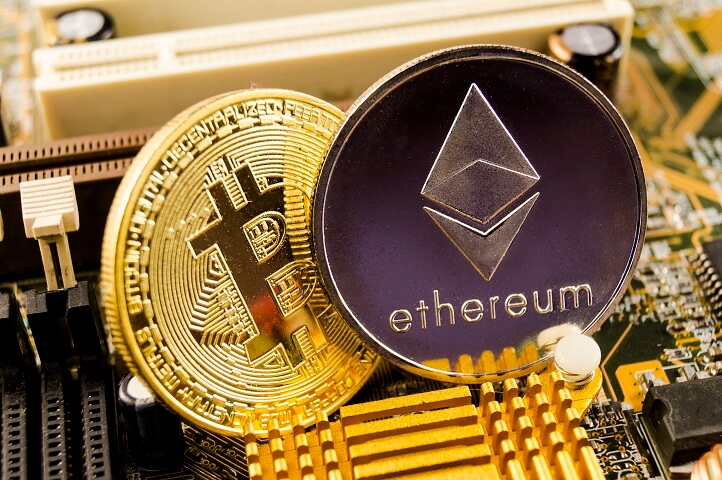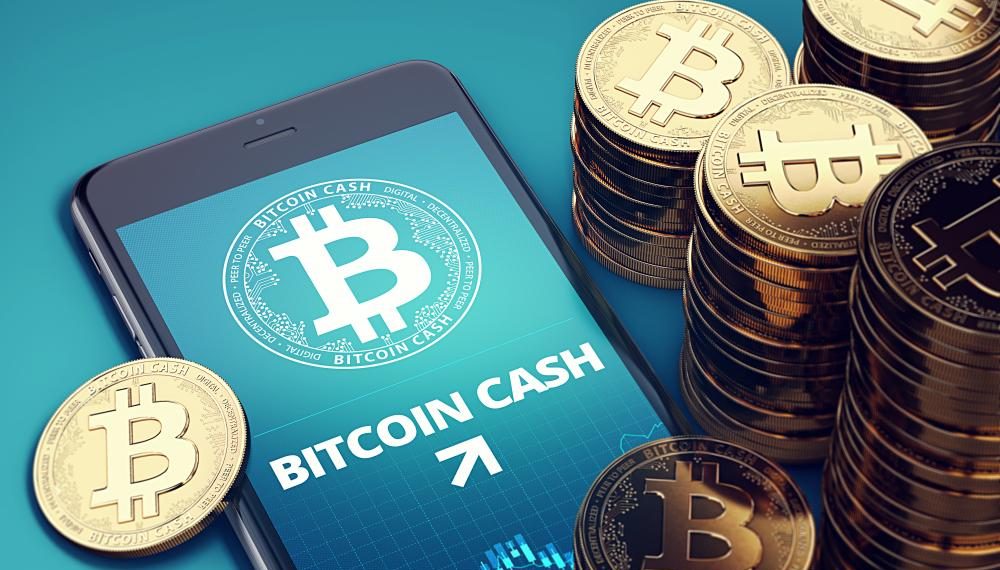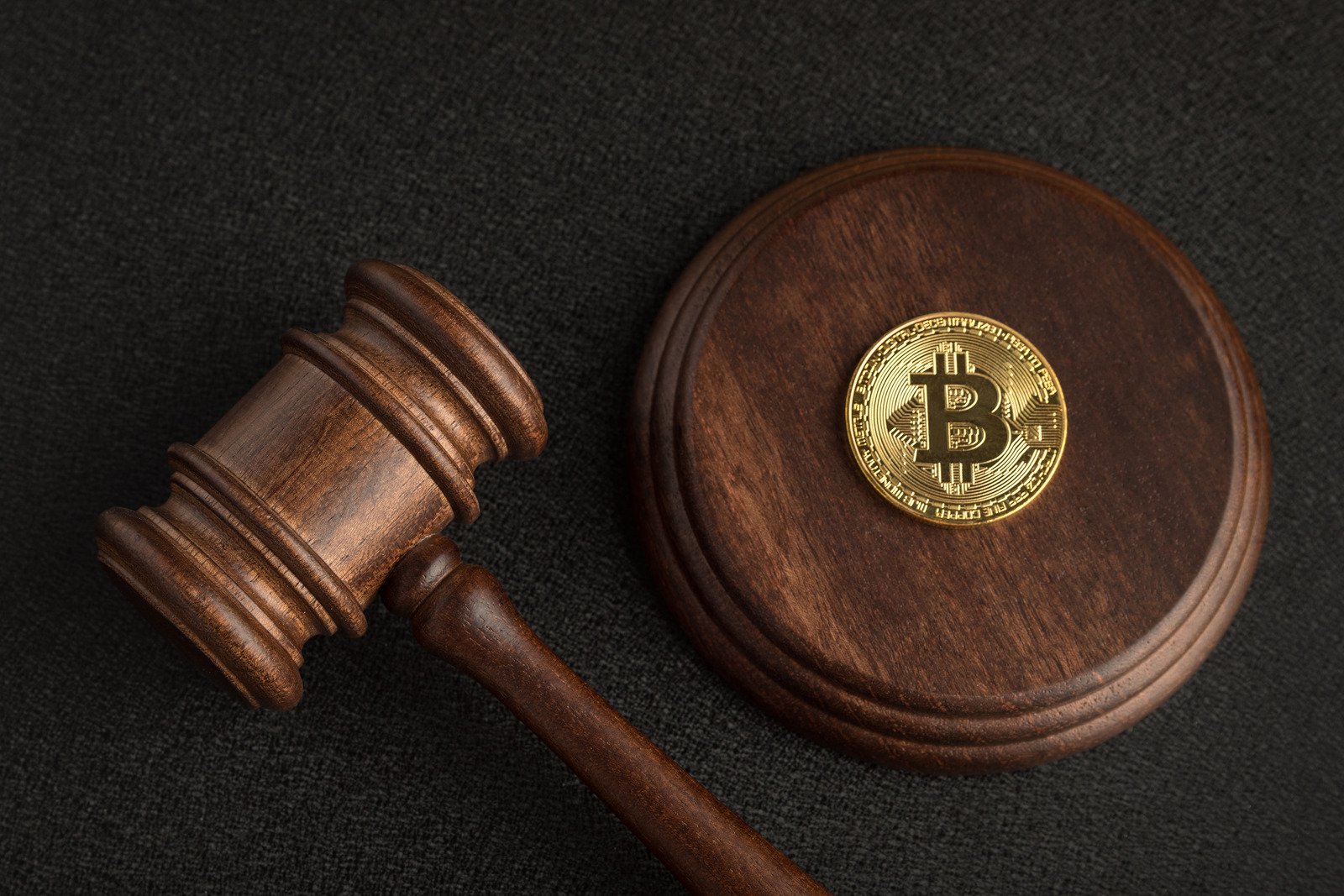Every single fiat currency in the world is created, released and controlled by a single entity – in most cases a central bank. By law, ordinary citizens are only allowed to buy, sell or keep the currency. If someone tries to create any amount of money, they will inevitably find themselves behind bars.
When Bitcoin was introduced, it created a completely new and unique paradigm. The world’s first digital, decentralized currency that isn’t controlled by anyone at all. Moreover, the very concept of Bitcoin implies that anyone with enough computing power can create coins by simply being an active part of the community.
As it’s becoming more and more mainstream, law enforcement agencies, tax authorities and legal regulators all over the world are trying to wrap their heads around the concept of cryptocurrency and where exactly does it fit in existing regulations and legal frameworks.
The legality of Bitcoin depends on who you are, where you are in the world, and what you’re doing with it. Here’s our guide on legal issues concerning Bitcoin, where we mostly focus on the US but cover other major countries as well.
Concerns about cryptocurrencies
In many jurisdictions, the authorities are still struggling to understand Bitcoin, let alone define it in legal terms. Many concerns have been raised over its decentralized nature. It seems only natural for governing authorities to be worried about a financial community that can’t be fully controlled.
This also extends to exchanges and protection of people’s funds. While US-based exchanges have to be regulated, there are plenty of offshore platforms that don’t. Indeed, the cryptocurrency history has been filled with instances of exchanges suddenly shutting down and running away with people’s funds.
The most famous of such cases is the closure of the notorious exchange Mt.Gox. At the beginning of 2014, formerly the most prominent Bitcoin exchange in existence filed for bankruptcy due to technological problems and the apparent theft or loss of 744,000 of its users Bitcoins. That number made up about six percent of 12.4 mln Bitcoins in circulation at the time.
Bitcoin’s ability to be used semi-anonymously is another cause for concern. Even though every single transaction is recorded in the Blockchain, it is very easy for users to stay almost completely anonymous, as those records only contain the public keys and the amount of funds transferred.
Most of these concerns were voiced after a dark web market Silk Road gained mainstream-media attention, as Bitcoins were the only form of payment accepted there. The market was since shut down by the FBI, but the authorities are still worried about Bitcoin’s appeal among the traders of illegal goods and services. Moreover, it is feared that Bitcoin’s semi-anonymity and decentralized nature can be exploited in money laundering and tax evasion schemes.
Your opportunities depend on the role
Buying goods
In 2013, Bitcoin was classified as a convertible decentralized virtual currency by the US Treasury Department’s Financial Crimes Enforcement Network (FinCEN). They have also issued a guidance, in which they stated that those who obtain units of virtual currency and use it to purchase goods are not considered money transmitters and are operating within the law.
So, buying well-natured goods and services with Bitcoins is completely legal. The cryptocurrency is accepted as a form of payment on several major and minor online marketplaces and service providers, including Overstock, Shopify, and OKCupid. Moreover, there are shops and restaurants all over the US where you can pay with Bitcoins.
Investing
According to the same guidance, investing in Bitcoin is also within the legal territory. Many regulated US-based exchanges have to comply with the Anti-Money Laundering and Know Your Customer policies. Because of that, those who wish to trade and invest in Bitcoin have to verify their ID and connect an existing bank account.
Although, the US Securities and Exchange Commission (SEC) has warned potential investors that both fraudsters and promoters of high-risk investment schemes may target Bitcoin users.
Mining
The FinCEN guidance states that users creating units of Bitcoins and exchanging them for flat currency can be considered money transmitters and might be subject to special laws and regulations that cover that type of activity.
However, to this day the laws have rarely, if ever, been enforced to crackdown on Bitcoin miners.
Accepting payments in Bitcoins (for business)
It’s legal for businesses both big and small to accept Bitcoins payments. Assuming, of course, that it’s a well-natured business that sells goods and services for regular currency and chooses to accept Bitcoin as another legal way to pay. Any business accepting Bitcoin payments is also required to pay taxes on income received through Bitcoin.
Bitcoin has been recognized as a convertible virtual currency, which implies that accepting it as a form of payments is exactly the same as accepting cash, gold or gift cards.
Taxation
According to a Virtual Currency Guidance, which was first released by the Internal Revenue Service (IRS) in 2014, cryptocurrencies like Bitcoin are to be treated as property instead of as currency and to be taxed as such. However, it isn’t as simple as it might sound.
For instance, if you buy something worth $300 with your Bitcoins, it means that you just sold an asset. You either made a profit or a loss on that sale, depending on the Bitcoin’s value when you bought it and when you sold it. Whether it counts as an ordinary or a capital gain, short or long term depends on the circumstances.
The regulation is not entirely clear, but the IRS is trying to crack down on reporting. In the year 2015, only 802 people paid taxes on Bitcoin profits. The IRS is apparently using special software to track down Bitcoin tax cheats.
A bipartisan bill, which calls for a tax exemption for transactions under $600, was recently introduced in the House of Congress. If it passes, it will make lives of small, day-to-day traders much easier. Until then, it is recommended to keep records of all Bitcoin-related activities.
When it comes to trading Bitcoins, the records kept must contain the same information as stock or forex brokerage statements: date, description, quantity, price and fees. If you’re mining, you might need to know when the Bitcoin proceeds were attained. Businesses accepting Bitcoins as a form of payment need to record reference of sales, the amount received in BTC and the date of the transaction. If sales taxes are payable, the amount due is calculated based on the average exchange rate at the time of sale.
BitLicense
BitLicense is a set of regulations regarding Bitcoin transactions put forward by the New York State Department of Financial Services (NYDFS) for Bitcoin companies operating in New York or serving NY residents. As of September 2017, two years after the regulation came into effect, only five licenses were granted, and the companies that managed to obtain them had to spend upwards to $100,000 in order to do so. Many companies decided to opt-out of serving New York residents, with Bitfinex exchange describing the requirements set forth by NYDFS as ‘extremely invasive,’ adding that they would compromise their user base’s privacy.
The license can be obtained through a process of application, which costs $5,000. Companies looking to obtain the license will need to have a compliance officer, responsible for overseeing the firm’s compliance with the regulations. Moreover, all other federal and state laws that apply to Bitcoin have to be obeyed. This includes compliance with Money Transmitter laws, Anti-Money Laundering and Know Your Customer policies. Such protections can get very expensive.
Regulators’ opinions
SEC — Securities and Exchange Commission
The Securities and Exchange Commission has been notably quiet on the subject of Bitcoins, especially compared to regulatory bodies in other countries. In 2014, they published an investor alert, in which they warned people that Bitcoin users can be targeted by fraudsters.
The SEC has recently investigated a cryptocurrency initial coin offering (ICO) called ‘DAO.’ which was hacked and about $50 mln worth of Ether coins were stolen. In this investigation, SEC focused primarily on whether DAO coins constituted security. The report concluded that investing money in a token, expecting a profit which derives from the managerial efforts of other people makes a cryptocurrency security and requires appropriate regulation.
However, SEC’s report focused entirely on Initial Coin Offerings, and Bitcoin is way past that. So, any regulations SEC is likely to impose, will most likely only concern newcomers to the market. Whether Bitcoin can be treated as a security depends on the particular transaction, but SEC has decided that any firm using Blockchain technology to trade securities would need to register as an exchange, Alternative Trading System (ATS) or broker/dealer.
FinCEN — Financial Crimes Enforcement Network
According to FinCEN’s guidance on cryptocurrency, ‘virtual currency,’ as they call it, is defined as a ‘medium of exchange that operates like a currency in some environments, but does not have all the attributes of real currency.’ The guidance only addressed convertible virtual currency like Bitcoin, which can either act as a substitute for real currency or has an equivalent in existing currency.
‘Users’ of virtual currency are not considered an MSB (Money Serving Business) under FinCEN’s regulations. This means that if you obtained Bitcoins to pay for goods or services, you are not subject to MSB registration, reporting and recordkeeping regulations.
In contrast, ‘exchangers’ and ‘administrators’ are considered money transmitters, and therefore are required to comply with FinCEN’s regulations. The guidance defines ‘exchangers’ as people engaged as a business in the exchange of Bitcoins and other digital currencies, while ‘administrators’ are engaged as a business in putting virtual currency into circulation.
In July 2017, in its first action against a foreign-located MSB operating in the U.S., FinCEN imposed a £110 mln penalty on the BTC-e exchange, arresting one of its operators and seizing the site’s domain.
CFTC — Commodity Futures Trading Commission
CFTC is an independent US Federal agency that looks after financial derivatives. In 2014, a CFTC Commissioner stated that the agency definitely has authority when it comes to Bitcoin, as they believed it can be classified as a commodity.
Recently, the agency released a primer, in which they stated that virtual currencies can be considered commodities or derivatives contracts, depending on the particular facts and circumstances. This resulted in an eight percent drop in Bitcoin’s exchange rate, as investors feared tighter regulations.
CFTC seems to have taken a pro-Bitcoin stance, recently granting LedgerX the right to create a regulated Bitcoin futures market. In September 2017, CFTC filed its first-ever charges against Bitcoin fraudsters. In a move welcomed by genuine Bitcoin investors, Gelfman Blueprint was charged with fraud, misappropriation, and issuing false account statements in connection with solicited investments in Bitcoin.
IRS — Internal Revenue Service
Even though IRS released general guidance on the taxing of digital currencies, many questions still remain unanswered. The agency further complicated things with its decision to tax Bitcoin as property, which means that even paying for a cup of coffee with the cryptocurrency will incur a tax.
According to the IRS regulations, buying goods and services with Bitcoin is exactly the same as selling an asset. If you spend your Bitcoins, it means that you’ve either made a profit or a loss, depending on a BTC’s exchange rate when you bought it and when you sold it.
In order to comply with the IRS regulations, it is recommended that you keep a record of all your Bitcoin-related transactions.
As only 0.04% of customers included crypto in their 2017 tax reports, the IRS has ramped up their hunt for Bitcoin tax evaders, having even formed a dedicated taskforce. However, while the IRS is closely monitoring Bitcoin and other cryptocurrency transactions in an attempt to get more tax dollars, there have been rumours about a possible future tax amnesty for Bitcoin users. Whether it will actually happen as well as when it will happen still remains to be seen.
Federal Reserve
The US Federal Reserve is the world’s most influential banking entity, as it controls the global reserve currency – the US dollar. They are very interested in digital currencies and the technology associated with them, having published thorough papers on both Bitcoin and Blockchain. The fact that a financial giant like Federal Reserve invested man-hours into understanding the concept of Bitcoin speaks volumes about how influential the currency is becoming.
However, the organization has repeatedly issued warnings about the risks associated with digital currencies. Recently, the Federal Reserve stated that they are keeping very ‘close attention’ to Blockchain, describing it as something that ‘could ameliorate or exacerbate traditional financial risks.’ A US Fed Governor was also quoted saying that digital currencies could make it easier to hide illegal activities.
Janet Yellen, the US Federal Reserve chair, was recently quoted saying that the Fed is currently researching into introducing its own digital currency. If that happens, the U.S. will join the crypto market with their own, official and state-controlled cryptocurrency.
FINRA — Financial Industry Regulatory Authority
The self-regulatory organization for U.S. brokers has been quite active in terms of defining Bitcoin, completing guides and issuing warnings for its clients.
What is interesting, is that in its report on Distributed Ledger Technology FINRA implied that the widespread use of Blockchain technology could impact the organization’s core business practices. Specifically, the way FINRA members self-regulate in the areas of Anti Money Laundering and Know Your Customer policies, asset verification, business continuity, surveillance, payments, and even record-keeping.
OCC — Office of the Controller of the Currency
In its 2016 paper, the office of the US Treasury proposed a possibility of moving forward with considering applications from fintech companies to become special purpose national banks (SPNBs). This initiative is set to provide companies that wish to become limited purpose digital banks with a unified federal regulatory regime. However, as of November 2017, there are still some significant political and legal uncertainties surrounding this initiative.
Moreover, the OCC released another optimistic paper in which it called for the formation of a ‘responsible innovation’ department. They are planning to launch offices in Washington, New York and San Francisco to spur the growth of emerging technologies, including digital currencies.
CFPB — Customer Financial Protection Bureau
The Bureau has issued a consumer warning about Bitcoin. The volatile exchange rates, possible lack of assistance from exchanges in case of lost funds, and the threat of hacking and scams were cited among potential issues. Besides that, the CFPB has also acknowledged Bitcoin’s benefits.
NFA — National Futures Association
The NFA is an independent self-regulatory organization for the US futures market. Every participant in the futures market, including those trading in Bitcoin, is required to have the NFA membership.
Organizations which develop legislation
Similarly to most other governmental organizations, the US Senate and The House of Representatives haven’t been very local in regard to Bitcoin and other digital currencies.
In August 2013, the US Senate sent out letters to various law enforcement agencies, asking about potential risks and threats in relation to cryptocurrencies. Most of the agencies responded with a cautious acknowledgment of legitimate uses of Bitcoins.
Since then, the topic of cryptocurrencies was often discussed both in the Senate and The House of Representatives. In 2016, The Congressional Blockchain Caucus was formed in order to bring all congressmen up to speed on the subject of Bitcoin and Blockchain in hopes of creating future laws that will affect that particular sector.
In the Summer of 2017, US lawmakers drafted a bill that is set to protect cryptocurrencies from government interference. If the bill goes through it will provide protection to certain cryptocurrencies that comply with specific minimum requirements to prevent them from being used in illegal business practices. The bill is expected to be filed in the Fall of 2017.
Countries in which Bitcoin is banned
Bolivia
In 2014, El Banco Central de Bolivia outright banned any currency that wasn’t issued by or regulated by the government. The bank specifically mentioned Bitcoins as well as some other digital currencies, but the ban extends to all cryptocurrencies.
Bolivian authorities have recently cracked down on cryptocurrency use, labeling it a pyramid scheme and arresting 60 people. An accompanying statement emphasized that the action was necessary to remind the population that any kind of digital currency is prohibited.
Ecuador
The Ecuadorian government has banned Bitcoin and all other digital currencies, due to the establishment of a new state-run electronic money system. The project is designed to be directly tied to the local currency and is controlled by the government.
Vietnam
In 2014, the Vietnamese Central Bank issued a statement in which it explicitly prohibited the population to use Bitcoins within the country. This was done as a precautionary measure with the faith of digital currency set to be decided later by the Prime Minister.
According to reports, in August of 2017, the Vietnamese Prime Minister has authorized a plan that could potentially lead to the official recognition of Bitcoin and other digital currencies as a form of payment by 2018.
However, in October 2017 Vietnamese government made another complete turnaround and outright banned the use of digital currency in the country. It was also announced that starting early 2018 anyone caught using digital currencies will face a fine.
Countries in which Bitcoin is legal
Australia
Initially, Australians were potentially subject to goods-and-services tax when they either purchased or spent a cryptocurrency. Often, consumers could effectively bear this tax twice: once when they purchase the cryptocurrency and once again when they’ve used it in exchange for goods and services subject to that tax.
Just recently, in a move aimed at paving the way for more potential fintech investments into the country, the Australian government has finally provided a legislative end to the double taxation of Bitcoin and other digital currencies.
Bulgaria
Bulgaria was the first European Union member state to officially recognize Bitcoin as a currency, instead of treating it as a gold-like commodity.
Canada
Bitcoin is currently classified as an intangible asset. It is expected to be regulated under Anti-Money Laundering and Counter-Terrorist Financing laws. This provision is yet to become active, but when it is, ‘dealers in digital currency’ will be regulated as Money Services Businesses.
China
In 2013, the People’s Bank of China (PBOC) banned all financial institutions from handling Bitcoin-related transactions, prohibiting pricing in, buying, and selling of Bitcoins. Trading Bitcoins by individuals is still legal in China.
The Chinese government has been cracking down on cryptocurrencies use in their country, urging multiple exchanges to stop withdrawals, without providing any lawful paperwork. In September 2017, all Chinese virtual currency exchanges were urged to stop trading by the end of the month in order to remain compliant with the regulations.
Additionally, Chinese regulators introduced bans on cryptocurrency exchanges and ICOs. However, while those bans were undoubtedly harsh and unprecedented, they weren’t able to completely stamp Bitcoin out of China. In their latest attempt to do so, Chinese regulators will begin adding both onshore and offshore platforms related to virtual currencies and ICOs to the Great Firewall.
Estonia
The Estonian Ministry of Finance has ruled that there are no legal obstacles to use Bitcoin and other similar cryptocurrencies as a payment method. Traders must identify the buyer when establishing a business relationship or if the buyer acquires more than €1,000 worth of the currency a month.
Finland
The Finnish Tax Administration decided to treat Bitcoin transactions as private contracts equivalent to contracts for difference for tax purposes. If you’re buying goods with Bitcoins or converting BTCs into flat currency, any increase in price will be taxable, while losses are not tax-deductible. Mined Bitcoins are considered earned income.
Finnish Central Board of Taxes has gone against the conventional EU approach and classified all services around Bitcoin and other similar digital currencies as financial services, making them VAT exempt.
France
In 2014, the French Ministry of the Economy and Finances has outlined regulations to be put in place for financial institutions and users of digital currencies. The regulations required Bitcoin distributors to limit the level of anonymity by identifying and verifying their users. The treatment of digital currencies is required to be clarified for tax purposes as well, with currencies becoming subject to capital tax gains. A threshold of €5,000 was proposed on the margin tax to allow the population to try, invest and develop business with Bitcoin before paying tax.
Germany
In Germany, Bitcoin is recognized as private money. This decision enables users of Bitcoin to continue using it without any interference from the government and gives the authorities an opportunity to tax the profits of companies using the digital currency.
Iceland
According to a 2014 statement from the Central Bank of Iceland, transactions with Bitcoins and other digital currencies are subject to restrictions.
In 2017, the Central Bank introduced a new set of rules, according to which wide and general exemptions were granted from the previously imposed restrictions.
Israel
As of 2017, the Israel Tax Authorities view Bitcoin as a taxable asset, instead of currency or financial security. According to this policy, every time a Bitcoin is sold, the seller has to pay a capital gains tax of 25 percent. Miners and traders are treated as businesses, which makes them subject to corporate income tax and a 17 percent VAT.
Just recently, it was reported that Israel is to begin taxing Bitcoin and other cryptocurrencies as property. This means that it will be taxed by the capital gains tax, which in Israel stands at 25% for private investors, while a marginal rate for businesses stands at 47%. As cryptocurrencies are considered an “intangible asset”, private investors won’t have to pay VAT, while the businesses will still be subject to VAT.
Japan
Japan is one of the very few countries where Bitcoin is recognized as a legal form of payment. In 2017, the tax on Bitcoin trading was eliminated and Japanese financial authorities started issuing cryptocurrency exchange licenses.
Jordan
According to the Central Bank of Jordan’s current policy, banks, exchanges, financial companies and payment service companies are prohibited from dealing in Bitcoin and other digital currencies. Both the Central Bank and the government of Jordan issued warnings discouraging people from using Bitcoins, but small businesses and merchants still accept them.
Mexico
Mexican parliament is currently considering a legislation aimed at regulating the country’s rapidly-growing financial technology sector, which includes Bitcoin and other cryptocurrencies. The legislation proposes a clear set of rules for fintech companies, aimed at reducing costs and driving competition in the sector. It is also set to ensure financial stability and prevent money laundering and financing of extremists.
Slovenia
According to the Slovenian Ministry of Finance, Bitcoin can neither be considered a currency, not an asset. Bitcoin transactions are not subject to capital gains tax, but Bitcoin mining and businesses selling goods and services for the digital currency are taxed.
Sweden
When it comes to acceptance of Bitcoin and other digital currencies, the Swedish jurisdiction is one of the most favorable in the world. The Swedish Financial Supervisory Authority has publicly proclaimed digital currencies like Bitcoin a legitimate way of payment. Moreover, the Swedish tax authority has even decided to tax Bitcoin mining depending on how successful it is.
Certain businesses, which are mainly exchanges, are required to file an application for a license and comply with all the regulations applicable to more traditional financial service providers, such as Anti-Money Laundering and Know Your Customer policies.
Countries in which Bitcoin is not regulated
Belgium
Even though the Minister of Finance indicated that there is no immediate need for the government to intervene in the Bitcoin system, there have been talks about a new legislation which is set to strengthen government control over Bitcoin and other cryptocurrencies.
Brazil
Back in 2014, The Central Bank of Brazil issued a statement concerning cryptocurrencies, in which it stated that Bitcoin and other digital currencies are not to be regulated. A few years later, the President of the Central Bank went on to describe Bitcoin as a pyramid scheme.
China: Hong Kong
The Chief Executive of Hong Kong Monetary Authority (HKMA) deemed Bitcoins a virtual commodity, stating that the HKMA will not regulate the cryptocurrency.
The Secretary for Financial Services and the Treasury of Hong Kong has said that the existing laws don’t directly regulate Bitcoins and other similar digital currencies, but provide sanctions for unlawful acts involving those currencies, such as fraud and money laundering.
Colombia
In 2014, Superintendencia Financiera de Colombia stated that the use of Bitcoin is not regulated. Just recently, the same governing body released another statement, in which it said that the Colombian government still doesn’t authorize or legalize Bitcoin for financial transactions. However, as of today, the country has no plans to make it illegal.
Cyprus
The use of Bitcoins and other cryptocurrencies is not regulated in Cyprus.
Denmark
Denmark’s Financial Supervisory Authority (FSA) declared that Bitcoin is not a currency and stated that it does not fall under its regulatory authority.
Greece
There are no specific regulations regarding Bitcoin and other digital currencies in place in Greece.
India
According to a statement made by the Deputy Governor of the Reserve Bank of India, IRB neither regulates nor supports Bitcoins. Although Bitcoin is not banned in India, it is forecasted that it will not become fully legal without a suitable organization to monitor all cryptocurrency-related activities.
In the end of 2017, India’s Ministry of Finance compared Bitcoin and other cryptocurrencies to ponzi schemes and warned investors of the potential dangers.
Indonesia
As of today, Indonesian authorities haven’t outlined and detailed policies of regulating or banning the use of Bitcoin.
However, the Bank of Indonesia has recently issued a statement warning potential investors against of selling, buying and trading cryptocurrency. The statement went on to state that any virtual currency is not legitimate within the country.
Lebanon
The Bank of Lebanon was the first in the region to issue a warning about Bitcoin in 2013. Since then, there has been little to no action from the country’s officials regarding digital currencies. The only notable exception being the Lebanese Central Bank’s Governor criticizing Bitcoin and other digital currencies. He labeled them unregulated commodities, stating that they should be prohibited.
Lithuania
The Central Bank of Lithuania has issued a statement, warning the population of the potential risks involving operations with digital currencies. The main sentiment was that Bitcoins are not regulated by the Lithuanian or European authorities. The statement also mentioned the possibility of regulations, but no action is likely to take place.
Malaysia
In 2014, Malaysia’s Central Bank announced that it doesn’t consider Bitcoin a legal tender and it has no intentions to regulate it.
However, Bank Negara is currently shaping its new stance on cryptocurrencies. Despite an overall positive attitude toward Bitcoin, there are rumors that the Malaysian government might still ban cryptocurrency. The decision is set to be made by the end of 2017.
New Zealand
According to the Reserve Bank of New Zealand, non-banks don’t need their approval for operations that involve storage and transfer of Bitcoins and other digital currencies as long as they don’t involve the issuance of physical money.
Russia
In 2016, Bitcoins were deemed ‘not illegal’ by the Federal Tax Service of Russia.
However, since then Russian Central Bank stated that it is ‘categorically’ against the regulation of digital currencies as real money, as a means of payment for goods and services and against equating them with foreign currency.
Later, President Putin condemned Bitcoin and called for a ban of all digital currencies and the Deputy Finance Minister told reporters that cryptocurrencies are very likely to be outlawed. [replace the rest] However, Russian regulators have completely changed their minds since, with reports emerging that Bitcoin will be legal, while mining will be regulated. Since then, the Russian Ministry of Finance was cited saying it will legalize cryptocurrency trading on “official” exchanges.
Singapore
The Monetary Authority of Singapore (MAS) has previously issued statements of no interference policy and a warning to potential users of Bitcoins and other digital currencies. In a recent interview, a MAS official stated that the Central Bank still has no plans of regulating the cryptocurrencies, but it will keep an open mind. He also established the necessity of introducing Anti-Money Laundering control in the near future.
The Inland Revenue Authority of Singapore has issued a series of tax guidelines regarding the use of Bitcoin, according to which BTC transactions might be treated as a barter exchange and taxed accordingly. Businesses dealing with Bitcoin exchanges will be taxed based on their BTC sales.
Thailand
Initially, Bank of Thailand discouraged the population from using Bitcoins, warning potential investors of the risks involved. But it has since softened its stance, ordering a study on the cryptocurrency.
According to a ministerial regulation, Thai Bitcoin exchanges are required to have a Thailand Business Development Department e-commerce license and only facilitate exchanges of digital currencies for Thai Baht. There are also Know Your Customer and Customer Due Diligence policies in place.
The Netherlands
Digital currencies such as Bitcoin don’t currently fall within the scope of the Act of Financial Supervision of the Netherlands.
Ukraine
The National Bank of Ukraine has recently published a statement, in which it clarified that the Ukrainian hryvnia is the only one currency that can be legally used in the country. The Bank also stated that the status of Bitcoin in Ukraine is further complicated by the lack of a unified classification of the currency in the world and it does not publicly support any of the definitions made in other jurisdictions.
United Kingdom
The UK government has stated that Bitcoin is currently unregulated and is traded as ‘private money’ for most purposes, including VAT. This means that no VAT is imposed when Bitcoin is exchanged for sterling and other currencies. However, suppliers of any goods and services sold for Bitcoin and other digital currencies need to pay VAT. Profits and losses on digital currencies are subject to capital gains tax.













